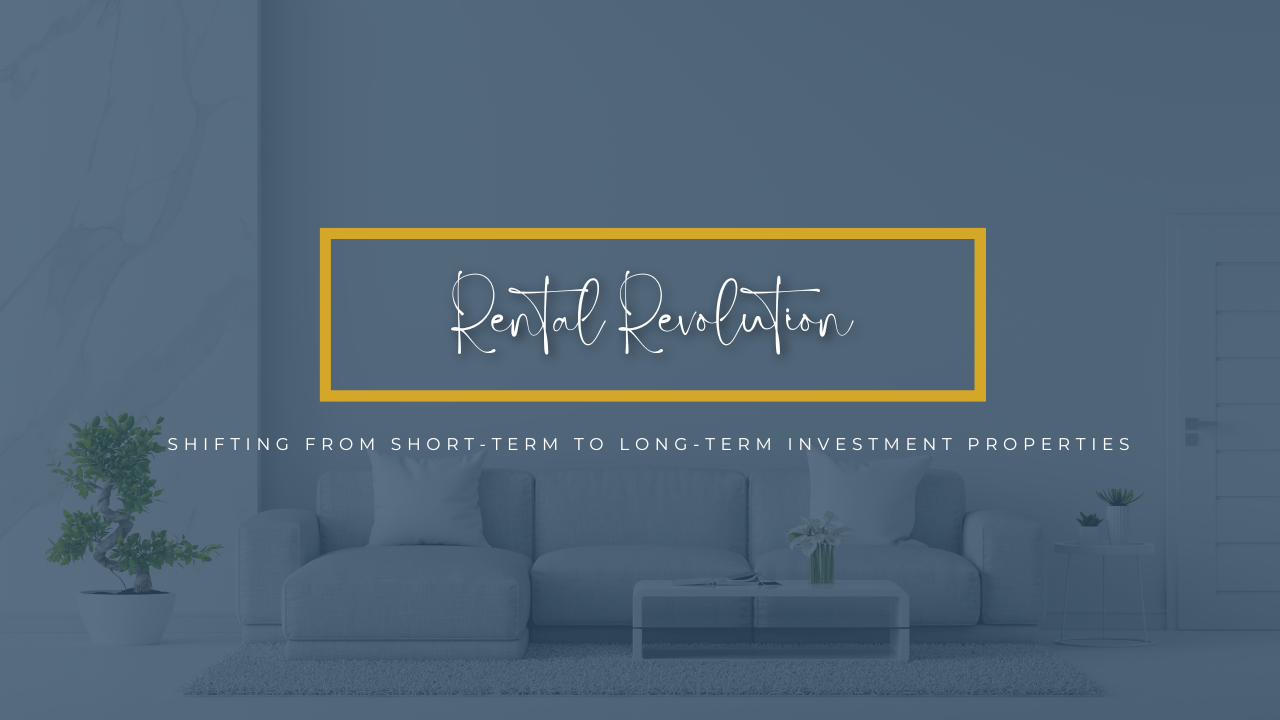Perhaps you were excited about the idea of renting out a short-term property. The average nightly rates can be pretty high, especially during busy seasons. And everyone who has a spare bedroom, a guest house, or an investment property seems to be talking about how much money they’re making on Airbnb or VRBO or similar sites.
There are a lot of excellent reasons to rent out a short-term vacation home.
However, as Richmond property managers, we can tell you that the real money is made when you have a long-term lease in place with a stable and reliable tenant. There’s less hands-on work required from you, much lower turnover, and you don’t have to keep up with repairing, cleaning, and replacing furniture, cooking utensils, and broken plates and glasses.
There’s another reason to focus on long-term investment properties rather than short-term rentals in Richmond: the market is huge. There’s a lot of demand for well-maintained rental housing in Richmond, and the supply is struggling to keep up. If you’re renting out a home to long-term tenants in Richmond, you can count on a pretty packed pool of renters. You can select a well-qualified resident and earn recurring and consistent rents every month. There’s a lot less vacancy and turnover when you have the same, stable tenant in place for a year or longer.
Let’s talk about how to shift from short-term to long-term investment properties.
Richmond’s Rental Market
If you do a quick check of sites like Zillow, you’ll find that the average rent across all property types, sizes, and neighborhoods in Richmond is around $1,585. This is higher than last year’s average and it’s even higher than last month’s average.
We’re always saying that Richmond property managers have better data than those online sites, so contact us for information that’s a bit more nuanced and detailed. The point we’re making here is that the rents are rising in Richmond, and you’ll find yourself earning a comfortable monthly income when you’re leasing a home for the long term.
As you rented out a home in the short-term rental, you most likely rented to people from outside of Richmond. That’s a different demographic than the tenant pool you’ll find in Richmond once you decide to rent the property out for the long term. So, it’s important to do a little research and get to know the shifting tenant demands, the competing properties, and the work you’ll have to do to attract and retain tenants to your home for the long term.
Do a little market research. Get to know the types of properties that are presently being rented. You’ll want to know:
How much they’re renting for
How long they’re vacant
What kind of properties are most in demand
What sorts of amenities are most in-demand (video doorbells? In-unit laundry?)
Get an idea of how your own rental home will compare in a market like this one. Your tenant pool will be more local, unless you’re renting to someone who is moving to Richmond from outside of the area. Either way, a comparative market analysis will give you a good idea of your starting point, and where you’ll find most of your challenges and opportunities as you transition from short-term rental to long-term home.
Provide an Empty Richmond Rental Property
All short-term and vacation rental properties are furnished, and you’ll likely have some beds, plates, small appliances, linens, and other furnishings to contend with. Before you can put your rental home on the long term market, you’ll need to remove all furniture and personal possessions. It’s a good time to sell them, donate them to charity, use them in your own home, or put them in storage for another purpose later.
Long term tenants are going to have their own furniture, and they’ll want to move those things into the property that they’re living in for a year or longer. While you’re removing everything, make sure you check for any minor maintenance issues, fix anything that needs to be fixed, and provide a good, thorough cleaning to the property.
Inspect for Maintenance and Improvements
As you begin to prepare your rental home for a long-term tenant, it’s a good opportunity to make some small improvements and upgrades, too. If you’ve been successful keeping your property occupied in the short-term, your rental home is likely well-maintained. There won’t be any major renovations necessary. However, before you look for long-term tenants, consider a fresh coat of paint and some new lights. Small aesthetic enhancements like that could make a difference in your rental value and the tenants you attract.
It’s important to know that tenants today are also putting a lot of value on environmentally sustainable features and smart home technology. Energy-efficient light bulbs and appliances will matter. Smart thermostats or video doorbells will also help you stand out in the long-term market. Do what you can to make your property more competitive. These tenants are looking for something that short-term tenants were not; the ability to feel at home.
Before you hang your For Rent sign:
Perform a thorough inspection to identify any maintenance needs. Make those repairs right away.
Consider upgrades or renovations that contribute to the property's longevity and appeal.
Install reliable security systems that provide peace of mind to long-term renters.
Confirm that all fire and safety codes are met.
Once the property is empty, clean, and looking good - you’re ready to find your long-term tenant. Prepare for the marketing and the tenant screening that’s involved. You likely had to market your home pretty aggressively as a short-term rental. Things will work differently as you look for a long-term tenant.
Establish a Competitive and Accurate Rental Price
Establishing a rental value will definitely look a little different than it did when you were renting out a short-term rental home by the night or by the week.
Long-term Richmond rental properties take in less money on a per-night basis, but that doesn’t mean you’re making less money on a long-term rental. You’re pricing according to a one-year lease agreement. That’s going to break out into monthly payments, but the value of your lease is whatever you’re earning over the term of that contract.
You don’t have to worry about the vacancy and turnover risk, remember. You won’t be looking for new tenants every week or every month. There’s more stability, and while that means less money per-night, it means more money on average per year or over the life of your investment property.
We’ll mention it again: research the market. Take a look at what homes similar to yours are renting for in the area. If you’re not sure where to find the right numbers, get in touch with a property manager in Richmond. We have some great reliable data that can help you establish a profitable and competitive rental value. We know what tenants are willing to pay and what they’re looking for in lease terms.
Our advice is always to earn as much as the market will allow, but don’t risk overpricing your property. That’s only going to create a longer vacancy period, which will delay your income and hurt your ROI. Do not compare what you were earning when you rented your home by the night or by the week. This pricing structure is much different.
Learn Your Virginia Landlord and Tenant Laws
Renting out a long term property requires you to understand the fair housing laws and other state, local, and federal rules. Virginia has some detailed regulations in place around security deposits, habitability standards, lease agreements, and evictions. It’s easy to make a legal mistake, especially if you’re not up-to-date on the laws.
You don’t have to allow pets, but you do have to allow service animals, for example. You should ask for a security deposit, but there’s a limit to what you can collect. Don’t set yourself up for an expensive legal mistake. Get to know the laws or talk to a property manager who can ensure you remain in compliance.
Finding a Long-Term Richmond Tenant
Once your property is ready for the rental market, you’ll need to do some advertising and marketing so you can attract, screen, and place that tenant.
Similar to vacation rentals, you’ll get most of your traffic through online rental sites. Instead of vacation sites, however, you’ll want to focus on pages like Zillow, Trulia, Zumper, HotPads, RentCafe, and others. The way you advertise is also different. Renters will be less interested in vacation amenities and more interested in school districts. Be strategic with marketing and use social media to get as much attention for your property as possible.
Invest in Professional Richmond Property Management
 You need to work with a Richmond property manager if you want to succeed with a long-term rental.
You need to work with a Richmond property manager if you want to succeed with a long-term rental.
Thanks to sites that likely managed your bookings and your payments, renting out a short-term property might have come easily to you. With a long-term renter, you’re dealing with risk, liability, laws, and other considerations. You’re also trying to retain tenants and earn as much as you can in the short term and the long term.
The best way to effectively and efficiently convert your rental property from a short-term rental to a long-term rental is by working with a Richmond property management company. We can help you avoid expensive mistakes that many landlords make, and we can introduce you to the tools and resources that will help you succeed.
Contact us at PMI Presidential to learn more.


